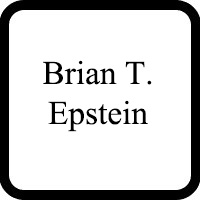 Shoreham Misdemeanor Lawyers, New York
Shoreham Misdemeanor Lawyers, New York
Sponsored Law Firm
-
 x
x

Click For More Info:
-
Law Office Of Darren M. Shapiro
99 Jericho Tpke Suite 300G Jericho, NY 11753» view mapDivorce & Family Law Long Island Divorce Lawyer
Darren M. Shapiro, Esq. provides effective and reasonable solutions for matrimonial and family law issues as a divorce attorney, family lawyer or divorce mediator.
800-952-1081
Not enough matches for Shoreham Misdemeanor lawyer.
Below are all Shoreham Criminal lawyers.
Sponsored Lawyers
1-5 of 5 matches
Accident & Injury, Criminal, Divorce & Family Law, Estate, Real Estate
Attorney Epstein graduated with his J.D. from Touro College. Attorney Epstein practices Divorce & Family Law, Criminal, Accident & Injury, Estate, and Real Estate Law. Mr. Epstein is has been a member of the New York Bar since 1992.
(more)


 Darren Shapiro Jericho, NY
Darren Shapiro Jericho, NY

